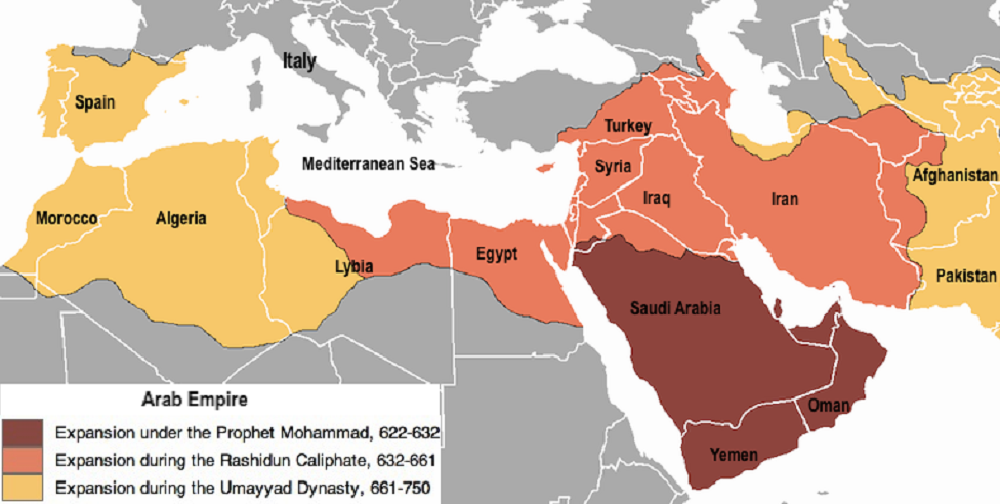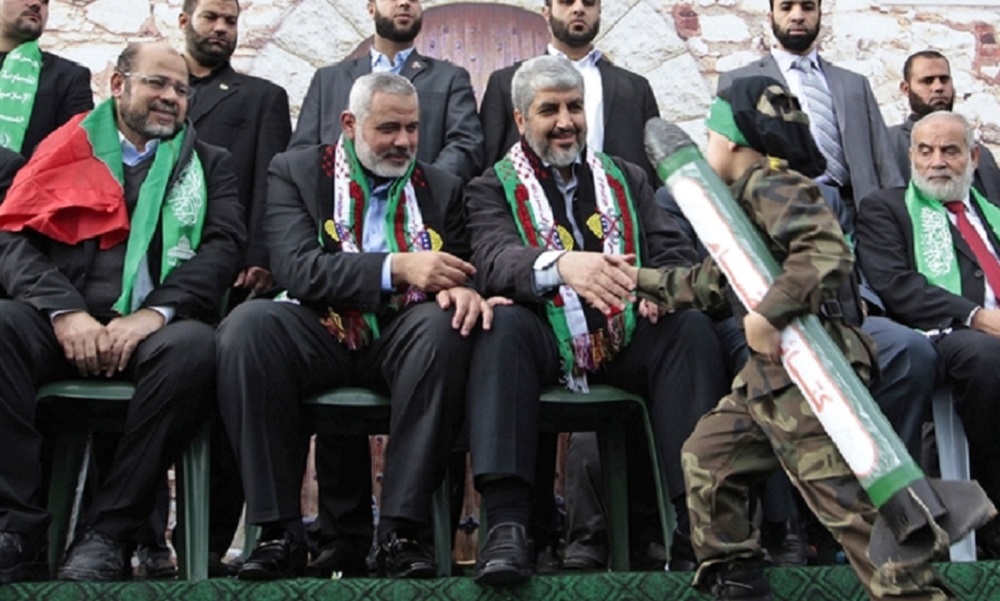The Perception of Weakness
Matters of war and peace involve issues of mutual perception as much as ideologies or interests. Historically, when enemies perceived each other to be strong, the deterrent effect of that perception prevented war. During the Cold War, the concept of “mutually assured destruction” led both America and the former Soviet Union to conclude that nuclear war was a ‘zero-sum game’ that neither could win. Similarly, history tells us that peace can prevail when enemies perceive themselves as weak. After the Hundred Years’ War (1337-1453) ravaged much of England and France, the memory of that destruction kept both nations out of direct conflict with one another for more than two centuries.
Unfortunately, history is replete with wars that were based upon incorrect perceptions of an enemy’s true power. In World War II, Hitler miscalculated the collective strength of the Allies in the European theater just as Japanese General Hideki Tojo underestimated the massive power of the United States in the Far East – a fear expressed by Admiral Yamamoto, commander of the Japanese fleet, who wrote in his diary immediately following the attack on Pearl Harbor: “I fear we have awakened a sleeping giant.”
Nowhere, however, are these misperceptions of power more clearly delineated than in the Arab-Israeli conflict. When Israeli Prime Minister Ehud Barak withdrew Israeli forces from southern Lebanon in 2000, the decision was universally applauded by the international community. However, even though Barak explained that the withdrawal was intended to demonstrate that Israel had no territorial designs on Lebanon, the fact that he withdrew his forces so quickly abandoning equipment to Hezbollah and putting Israel’s Lebanese Christian allies at grave risk signaled weakness to his enemies. Hezbollah and the Palestinians concluded that Israel was not prepared to accept casualties in defense of its national interests – just as the U.S. withdrawal from Lebanon after the 1983 Beirut bombings and the 1993 U.S. exit from Somalia after the “Blackhawk Down” incident led Al Qaeda to believe that the U.S. lacked the resolve to defend its overseas strategic interests.
In the summer of 2000, President Clinton met with Arafat and Barak at Camp David at which point Barak offered the Palestinian leader unthinkable concessions including a Palestinian state with East Jerusalem as its capital, control of the Temple Mount and ninety-five percent of the West Bank. Arafat balked, for in his mind, each Israeli concession signaled weakness and the hope of greater opportunities if he turned up the heat. Within three months of the Israeli withdrawal from southern Lebanon, he unleashed the second intifada.
Again, between 2000 and 2006, despite Israel’s knowledge that Hezbollah was building massive reinforced underground concrete bunkers along its northern border, the Israeli government refused to authorize the necessary military incursions and continuous targeted air strikes to destroy the threat. Despite overwhelming evidence from its intelligence branches and its surveillance satellites that Hezbollah was rearming, Israel made no attempt to interfere with the transfer of Iranian weapons to Damascus – a move the U.S. government would have supported in order to prevent the spread of radical Islam throughout the Middle East. Israel refrained from attacking Syrian convoys transferring advanced weaponry to Hezbollah in Lebanon, and failed to attack Hezbollah missile sites in southern Lebanon. This restraint reinforced Hezbollah’s perception of Israeli weakness and that perception ultimately led to the Second Lebanon War last summer.
What Israel perceived as restraint in the face of constant provocations, Hezbollah perceived as opportunity in the face of weakness. Although Israel emerged from the war tarnished but victorious (objectively speaking), subjectively, in the eyes of Hezbollah and rest of the Arab world, Israel had been “exposed” as weak, disorganized, demoralized and most of all, no longer invincible. With uninterrupted Iranian and Syrian financial, military and logistical support behind it, Hezbollah was able to shoot down Israeli helicopters, damage an Israeli naval cruiser, rein 4,000 missiles down on Israel’s northern population, force over a million Israelis to live in bomb shelters for weeks, and destroy many of Israel’s armored vehicles with advanced Iranian RPGs – all of which could have been pre-empted by continuously targeted air and land incursions over the preceding years. Israel’s failure to do so created the perception of vulnerability, weakness and fear.
In the south, the Israeli withdrawal from Gaza during the summer of 2005 was intended as a gesture of peace and reconciliation. Hamas, however, interpreted the withdrawal as yet another manifestation of Israel’s weakness. As a result, Hamas, the al Aqsa Martyrs Brigade and Islamic Jihad continue to prepare for war and fire missiles into southern Israel long after the Gaza evacuation has been completed. By fighting a defensive war in the mistaken belief that the aggression of its enemies can be contained or otherwise “managed”, the government of Israel has created the false perception of weakness in the minds of its enemies.
Perceptions aside, the truth is that the Israeli war machine, if permitted to fight the war it is capable of fighting, continues to retain the capacity to vanquish not only Hezbollah and Hamas, but any Arab state that threatens its existence. Unfortunately, in the eyes of the Arab world (whose delusions of grandeur are surpassed only by its unmitigated arrogance), the perception is that Israel lost the war with Hezbollah and is now ripe for the taking and Israel is doing little to alter that perception.
When Hamas spokesmen deliver sermons in Palestinian mosques citing the religious duty of the faithful to slaughter “the Zionist occupiers” and Palestinian television broadcasts these sermons live; and when The Palestinian Authority Ministry of Higher Education introduces 12th grade textbooks denying the Holocaust ever happened, while the Prime Minister of Israel continues to conduct ‘business as usual’ with the Palestinian Authority President who either cannot or will not end Palestinian terrorism and has no intention of doing so, the perception of Israeli weakness is reinforced.
When the Prime Minister of Israel gives his approval to the training and arming of the Hamas-dominated Palestinian security services knowing from past experience the probability that both will, at some point in the near future, be turned against IDF soldiers, the perception of Israeli weakness is reinforced.
When the Saudi Initiative (which includes, inter alia, a call for the “right of return of Palestinian refugees”) is presented to Israel as “non-negotiable” and the government of Israel responds that the Initiative is “interesting”, the perception of Israeli weakness is reinforced.
When Israeli security sources document that Hamas is preparing for war, and is constructing tunnels and underground concrete bunkers along the lines of Hezbollah’s fortifications in southern Lebanon; that it is being financed by and armed with advanced weaponry from Iran, and is providing missiles for Islamic Jihad’s attacks on Israel, all being done openly and without fear of Israeli retribution or the destruction of their entire political infrastructure, the perception of Israeli weakness is reinforced.
When senior Israeli defense officials warn of an unprecedented missile build-up on the Syrian side of the Golan Heights while the government of Israel continues to signal a secret willingness to discuss the Golan Heights issue with them, the perception of Israeli weakness is reinforced. In the Middle East, if history is any judge, this perception will inevitably lead to all-out war.
In democratic societies, seeking a resolution of international issues through negotiation, mediation and compromise is considered standard diplomatic practice. But in the Arab Middle East where the lines between the interests of secular nationalists (who seek the establishment of a viable, stable Palestinian state) and radical Islamists (who want an Islamic Palestinian state and a Middle East judenrein) no longer exist, any effort at compromise is seen merely as an opportunity to vanquish and exploit the weaker adversary.
The probability is that Israel’s enemies in Gaza, the West Bank, Lebanon, Syria and Iran have incorrectly concluded that Israeli resolve is faltering and that its fighting spirit can be broken. That perception is not only wrong, it is dangerous. Today, Israel is hearing the same ‘extermination rhetoric’ it heard four decades ago in the months and weeks preceding the Six-Day War. What we are witnessing, unfortunately, is a tragic replay of history – tragic because this false perception of Israeli weakness will end only when the perception of Israeli invincibility has been restored in the minds of Israel’s enemies. Unfortunately, as has so often been the case throughout history, it will take a major war to do it.




